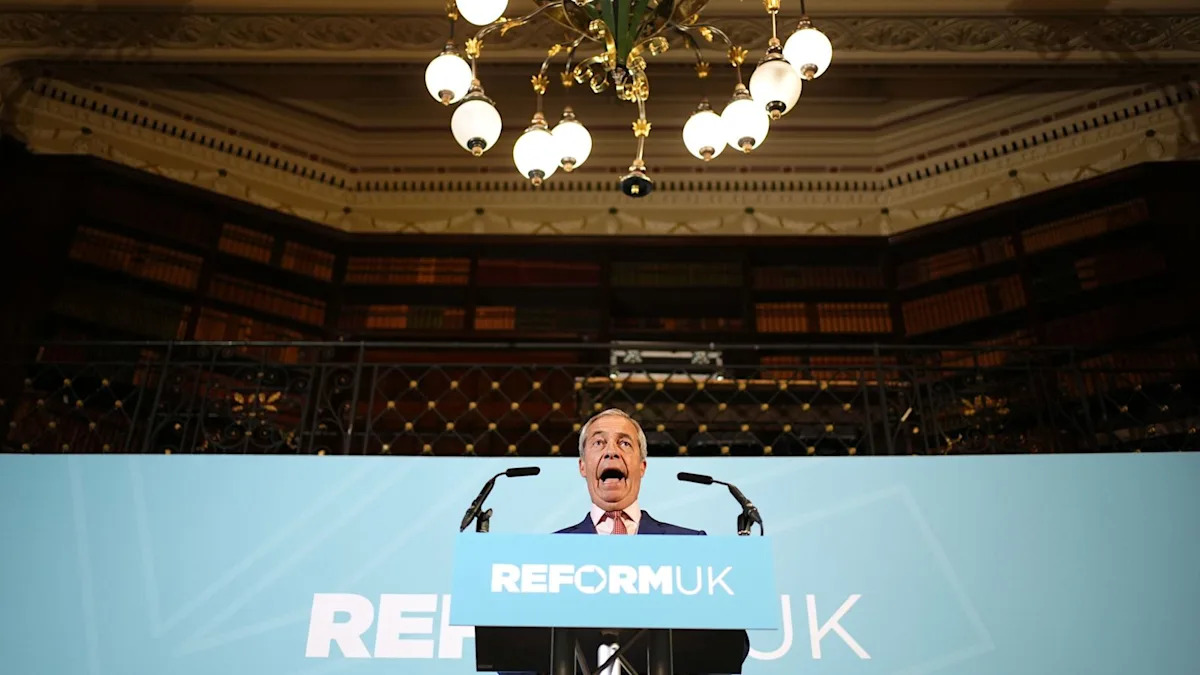The Reform leader claimed his policy to scrap leave to remain would save the country hundreds of billions of pounds, but that has been strongly disputed. ITV News Political Correspondent Romilly Weeks.
In the week of Labour’s party conference, Nigel Farage has once again pulled the spotlight onto migration.
The Reform UK leader announced that his party would scrap indefinite leave to remain (ILR), the legal status that allows migrants to settle permanently in Britain, if it were to win power at the next general election.
With an election a long while away and with only a handful of MPs, Reform UK are some distance from achieving this pitch to the British public.
Nevertheless, their lead in the opinion polls gives them enough leeway to exert considerable pressure on both the government and the opposition.
Under their proposal, people with settled status would be required to reapply for a visa every five years. The conditions would be tougher than today: a higher salary threshold and no access to benefits or free NHS care.
For those who fail to qualify, the risk would be stark – potential deportation.
“None of them will be given indefinite leave to remain,” said Farage of those migrants who came to the UK under former PM Boris Johnson’s tenure, in what the Reform leader termed the “Boriswave”.
ILR is currently the main route to citizenship, with tens of thousands of people using it to secure British citizenship. Barring EU citizens with settled status, Reform’s plan would retroactively apply new rules to those already living in the UK, meaning that families established in Britain for years could see their status stripped away. That prospect alone makes legal challenges almost inevitable, which would quickly become a stumbling block.
Then there’s the economic implications. Social care, hospitality and other lower-paid sectors rely heavily on workers with ILR. A higher salary bar would make it harder for employers to hold onto staff, raising fears of labour shortages. Business groups are likely to push back strongly against any such move, and as we’ve seen before, it can be very difficult to govern if businesses turn against you.
Reform council removes ‘climate emergency’ declaration
Demands for by-election as first Labour councillor defects to Reform
Ultimately, though, Farage’s framing of the issue is telling. While most economists argue that migrants on average wages are net contributors to public finances, Farage argues the opposite. It’s a deliberate pitch against the consensus view and a clear attempt to carve out political ground to the right of the Conservatives.
Farage is making it clear that Reform, in their promises at least, will go further than any other party when it comes to immigration.
Subscribe free to our weekly newsletter for exclusive and original coverage from ITV News. Direct to your inbox every Friday morning.
Reform has also attached eye-catching numbers to its plan, claiming it would save £234 billion over several decades. Government ministers dismissed those figures outright, saying the sums have “no basis in reality”.
What the policy would certainly mean, if ever implemented, is a programme of mass deportations on a scale unseen in recent British history. Farage, much like President Trump, knows how to generate a headline, even if the substance and details are still being worked out, and while he’s ahead in the polls, the current Reform strategy is unlikely to change.
From Westminster to Washington DC – our political experts are across all the latest key talking points. Listen to the latest episode below…
